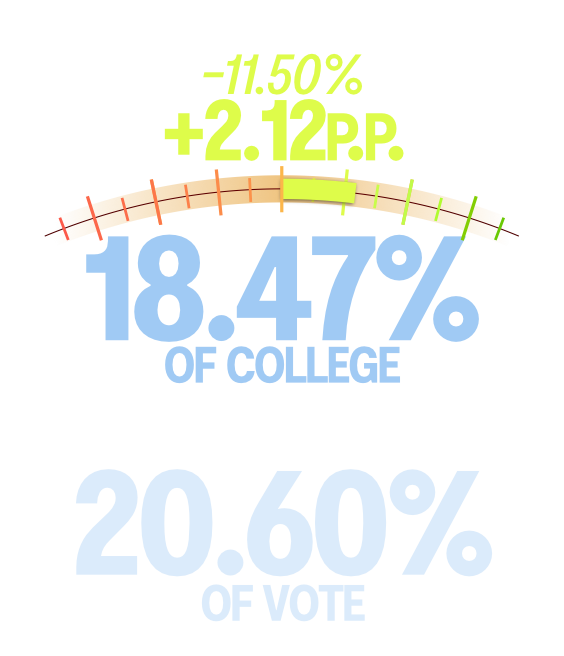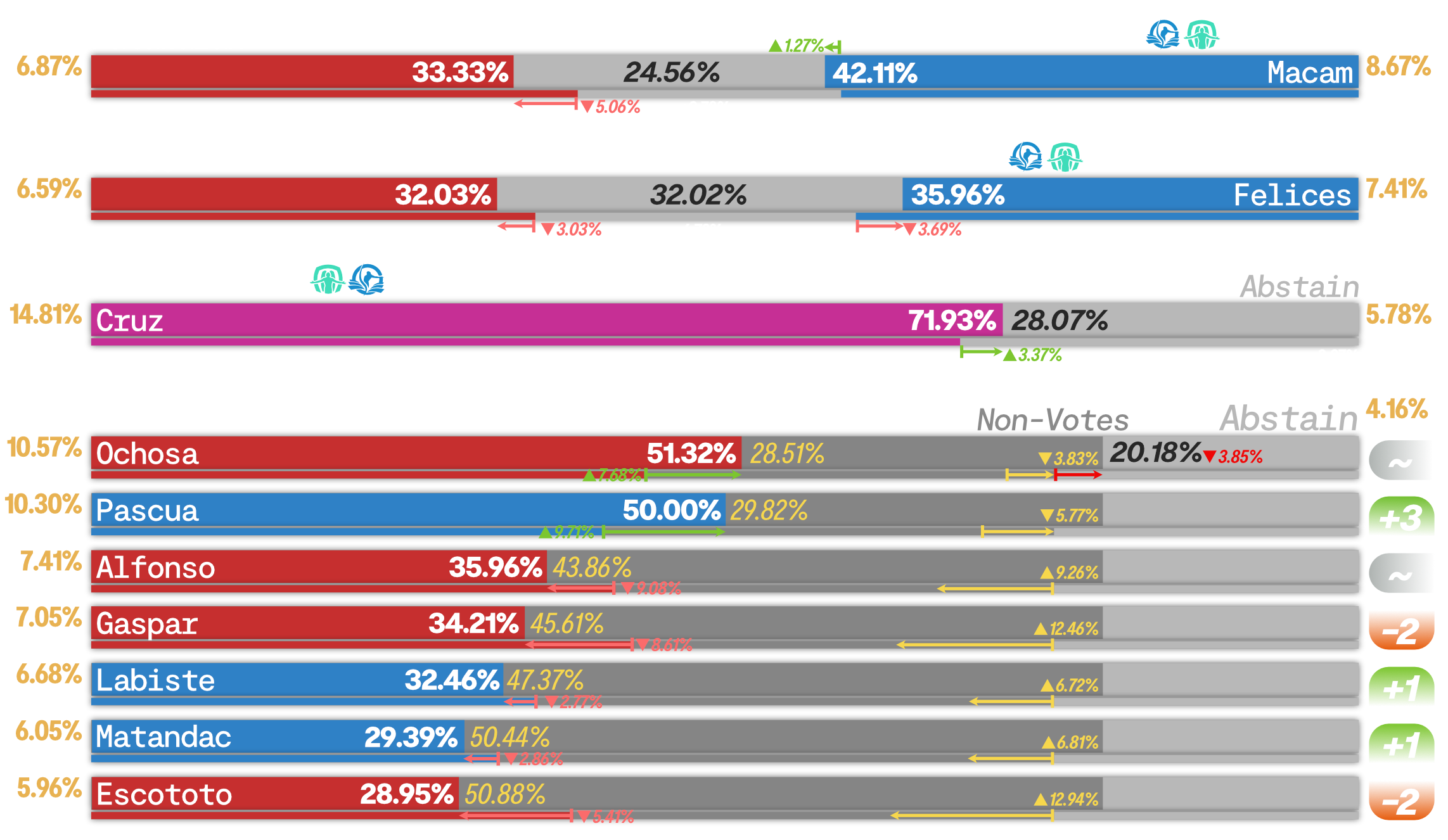

With over 2.12 percentage points of overrepresentation (+11%), PolSc is the second most overrepresented Department, trailing only Geog’s gargantuan 36% overrepresentation (+2.59p.p.). The Department also earns itself second highest turnout at 57%, though still astonishingly distant from Geog’s 70%.


With a -6% aversion to SALiGAN and -5% aversion to BUKLOD, the Department clearly remains in favor of Independents and holds votes cutting across parties. While BUKLOD edges out wins in the Standard Bearer positions, the Councilorships are a toss-up, with Ochosa and Pascua pulling ahead of the pack with leads over 50% and the rest falling short of 36%.


Overall, PolSc’s results are an unsurprising mix across both parties and lower-than-average abstention rates that claim no losses across all candidates.
PolSc remains particularly unpolarized, suggesting a different voting strategy compared to other departments. While its abstentions are nowhere near as severe as those in Psych and Kas, PolSc retains a sense of skepticism that shows with its higher-than-average abstentions for the Standard Bearer positions.
As a large and swingy Department, perhaps different strategies will fare better in the future, as neither party appears mete a foothold in the Department as of yet.
